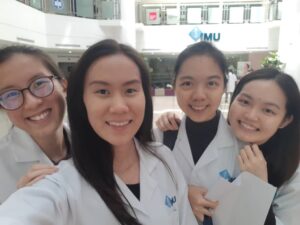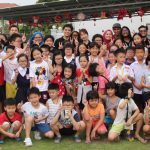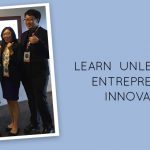“Experience can’t be taught.” – Anonymous.
Ever since we, students of Dietetics with Nutrition at IMU, started this programme, we have always been exposed to theories, concepts and experiences shared by our lecturers and seniors. We tried to fill up our brains with all the knowledge that this world could provide, but there is always this one question that has yet to be answered, “How do we apply the knowledge that we have into our future practice as a dietitian?”. This is when the Clinical Skills and Simulation Centre (CSSC) comes into play. CSSC is really a place where students can have a taste of what real-life setting is like and empowers you to become a better healthcare professional. The thought of entering into the clinical field which was a physical workplace was scary and filled with uncertainties for a student. There were countless questions on patient encounters and operations in the workplace, despite the theoretical knowledge we possessed. The experience in CSSC provided a real-life setting training platform to apply and practise dietetics clinical skills which are crucial for clinical placement in the final year. With guidance from lecturers and clinical educators, we were able to carry out the nutrition care process by applying the relevant dietetics knowledge to counsel and plan a nutrition intervention. Our lecturers were supportive and were student-centred, whereby individualised feedback was provided to the students.
| Simulated Patients |
|---|
| We were so grateful to have simulated patients who were able to give us constructive and practical feedback on our communication skills, which could help us to further improve our contact with patients in the future. An important lesson that we have learnt was to empathise with the patient. The purpose of allowing us to practise on simulated patients was not only to carry out our assessments and technical skills but also to help us understand patients’ context and to value patients as human beings who are worthy of love and care. |
| Peer learning |
| Peer learning was included, whereby observation and feedback from one student to another was helpful in creating ideas to develop our own skills. It has also opened up our minds into accepting different perspectives and mindsets when dealing with the same case due to group dynamics. Having known that the course requires soft skills such as communication and interpersonal skills to be applied in our future career, working on cases and learning together with different peers helped us to understand different people better. |
| Professionalism |
| Professionalism is one of the core values that a dietitian should have, and this was clearly emphasised during our experience in CSSC. It was not only the way we interacted with the stimulated patients but how we presented ourselves as a healthcare professional. From dress code to punctuality, and to the way we communicate with patients and being ethical. These qualities that were being introduced and polished during our CSSC sessions served a great help in our practice as a dietitian. |
All in all, the experience we had for our CSSC session was fruitful and valuable. We pray that we can apply the skills gained from this experience and continue to be eager to learn as we move further into our placement in Hospital Tuanku Ja’afar in Seremban.
This article is submitted by the Clinical and Experiential Learning Sub-committee.










